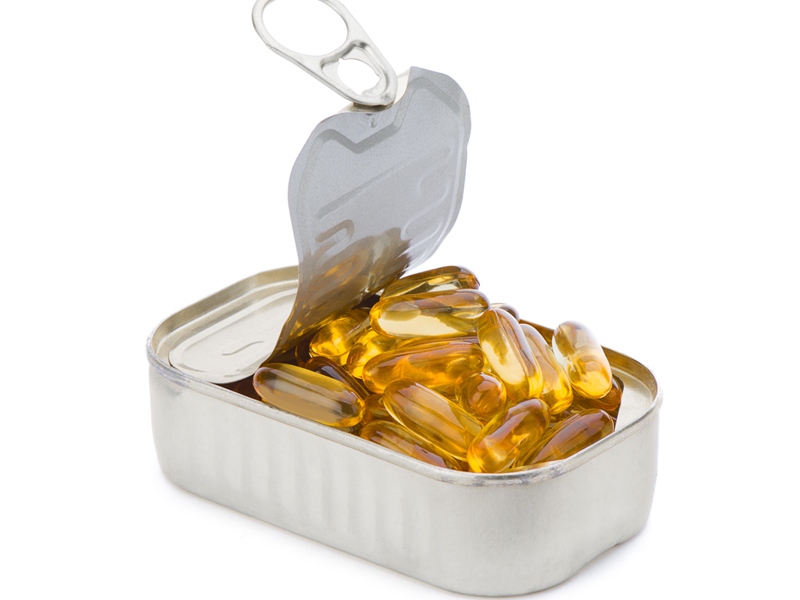Get Easy Health Digest™ in your inbox and don’t miss a thing when you subscribe today. Plus, get the free bonus report, Mother Nature’s Tips, Tricks and Remedies for Cholesterol, Blood Pressure & Blood Sugar as my way of saying welcome to the community!
When omega-3s do more harm than good

If you care about your health, you’ve probably taken omega-3 fish oil at some point or another. Its health benefits are nothing short of amazing.
After all, what other supplement can prevent heart disease, cancer and dementia in one fell swoop?
But fish oil is a fat. And fats are notoriously finicky about how you store them — especially omega-3 fats. If the environmental conditions aren’t exactly right, they begin to oxidize or break down.
Usually when this happens to your fish oil, you’ll notice an unpleasant fishy smell… but sometimes it can go undetected. And if it does, your fish oil could start harming your health more than helping it.
A recent study conducted by researchers at the University of Auckland in New Zealand found that pregnant rats who were given oxidized fish oil were more likely to have their newborn pups die. In fact, oxidized fish oil killed about 30 percent of these pups.
These results were so dramatic, that even researchers were astounded. They figured oxidized fish oil wouldn’t be good for the rats, but they didn’t expect it to kill their offspring. And if its killing baby rats, you may be wondering what exactly oxidized fish oil is doing to you. Or more importantly how you can avoid it…
First off, you should know how oxidation happens. It happens when fish oil is exposed to natural conditions like light, heat and oxygen. And it’s alarmingly common. One study published in the Journal of Nutritional Science found that of 171 brands of fish oil found on U.S. store shelves, 40 percent didn’t meet voluntary standards to prevent oxidation… which means your chances of purchasing oxidized fish oil are pretty high.
But the dangers of oxidized fish oil are still up for debate… mainly because there haven’t been many studies on how it affects humans. The University of Auckland’s rat study makes oxidized fish oil seem pretty dangerous (it kills baby rats, after all). But one seven week study on humans didn’t show any negative health repercussions. Of course, that study was only seven weeks… what if you’re taking this stuff long-term?
There still a lot researchers need to figure out about oxidized fish oil. At the very least, taking oxidized or rancid fish oil will leave you with some serious stomach problems, like heartburn, nausea and diarrhea. Old or oxidized fish oil also loses its efficacy, which means it won’t help your health at all…even if it doesn’t hurt it.
So your best bet is to stick to fresh fish oil and avoid the oxidized stuff altogether. You can do that by following a few simple tips:
- Always check the expiration date on your fish oil supplements. Never use anything that’s past its prime.
- Choose fish oil supplements that are packaged in containers that don’t let any light to pass through.
- Store your fish oil supplements in the fridge to keep them fresh.
- If your fish oil supplement has a fishy smell or if you burp up a fishy taste after taking it, throw it out and try a different brand.
You should also know that oxidation is a potential problem with all sources of omega-3s— not just fish oil. That means your flax oil isn’t safe either. The only omega-3 oil that’s relatively oxidation-proof is krill oil because it contains an antioxidant (astaxanthin) that protects it from the oxidation process.
Sources:
-
B. Albert, M.H. Vickers, C. Gray, C.M. Reynolds, et al. “Oxidised fish oil in rat pregnancy causes high newborn mortality and increases maternal insulin resistance.” American Journal of Physiology – Regulatory, Integrative and Comparative Physiology, 2016.
-
A. Jackowski, A. Alvi, A. Mirajkar, Z. Imani, et al. “Oxidation levels of North American over-the-counter n-3 (omega-3) supplements and the influence of supplement formulation and delivery form on evaluating oxidative safety.” Journal of Nutritional Science. 2015 Nov 4;4:e30.
-
Ottestad, G. Vogt, K. Retterstøl, M.C. Myhrstad, et al. “Oxidised fish oil does not influence established markers of oxidative stress in healthy human subjects: a randomised controlled trial.” British Journal of Nutrition. 2012 Jul;108(2):315-26.
-
“When Never EVER to Use Fish Oil.”Mercola.com. http://articles.mercola.com. Retrieved July 24, 2016.












